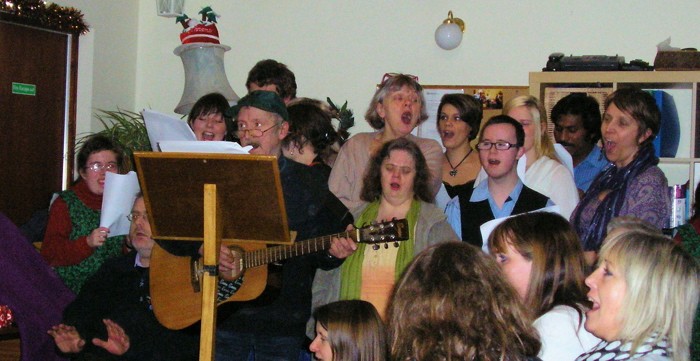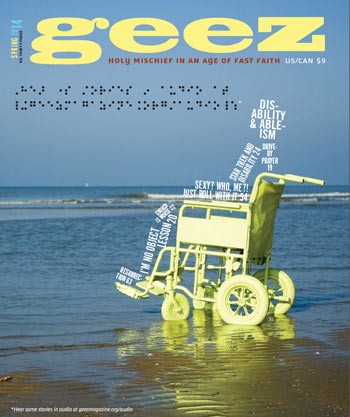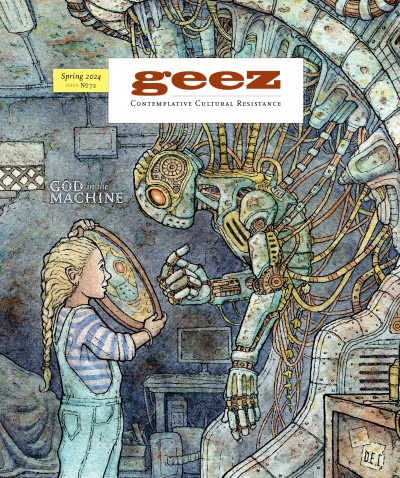Oppressed not disordered

A L'Arche community Christmas carol performance.
Credit: Duncan Brown, see link below
I have fond memories of cracking jokes, sipping virgin margaritas and going for rides on adaptive bikes with the women and men with intellectual disabilities I supported.
As a front-line caregiver, I connected beyond difference, revelled in comedy and embraced the little moments along the way. I was light and carefree, and the work was about friendship and fun.
The organization I worked for encouraged me to see my role as building community. I was taught to interpret the screams, tears and punches of the individuals I supported as symptoms of their intellectual disabilities. I was urged to create a dreamland and to respond to challenging behaviours with finger painting, baking or singing G-rated songs. Pain was something nameable, tameable and unique to them. It was theirs.
Sandy, a 60-year-old woman with an intellectual disability, often raised her fist, yelled at her caregivers to “fuck off” and screamed that she was getting married. It became part of Sandy’s routine, and caregivers like me were encouraged to respond with a bundle of one-liners, not by addressing the underlying issues. Jeanette Winterson writes that “a tough life needs a tough language,” but the possibility that Sandy was hungering for intimacy, frustrated with her care or using a tough language to articulate a tough life wasn’t explored.
Frustrated by matching vulgar behaviours with innocent one-liners, I started exploring other possibilities. Dialoguing with anti-oppression and feminist activists, I came to see how the people I was caring for were speaking from a place of powerlessness, voicing deeply embedded trauma.
Pain became political.
The individuals I cared for weren’t disordered: they were oppressed. By seeing their challenging behaviours as part and parcel of their intellectual disability, but outside of systems of oppression, I was denying their pain, their trauma.
And whatever is happening in them is also happening in me. I am not outside of the trauma cycle, and I am not immune to oppression. I too have had my heart broken. I too have kicked, screamed, cried. I am within the system, within the story.
When I hear my story is political – rooted in oppression and not disorder – I am invited to cultivate freedom, to confront reality, to be gentle with myself and others and to foster community by transcending – and not denying – trauma. Our trauma.
Janna Klostermann writes from Ottawa, Ontario, where she is researching writing and identity at Carleton University. She believes “to make-story is to heal.”
Image: Duncan Brown



Sorry, comments are closed.